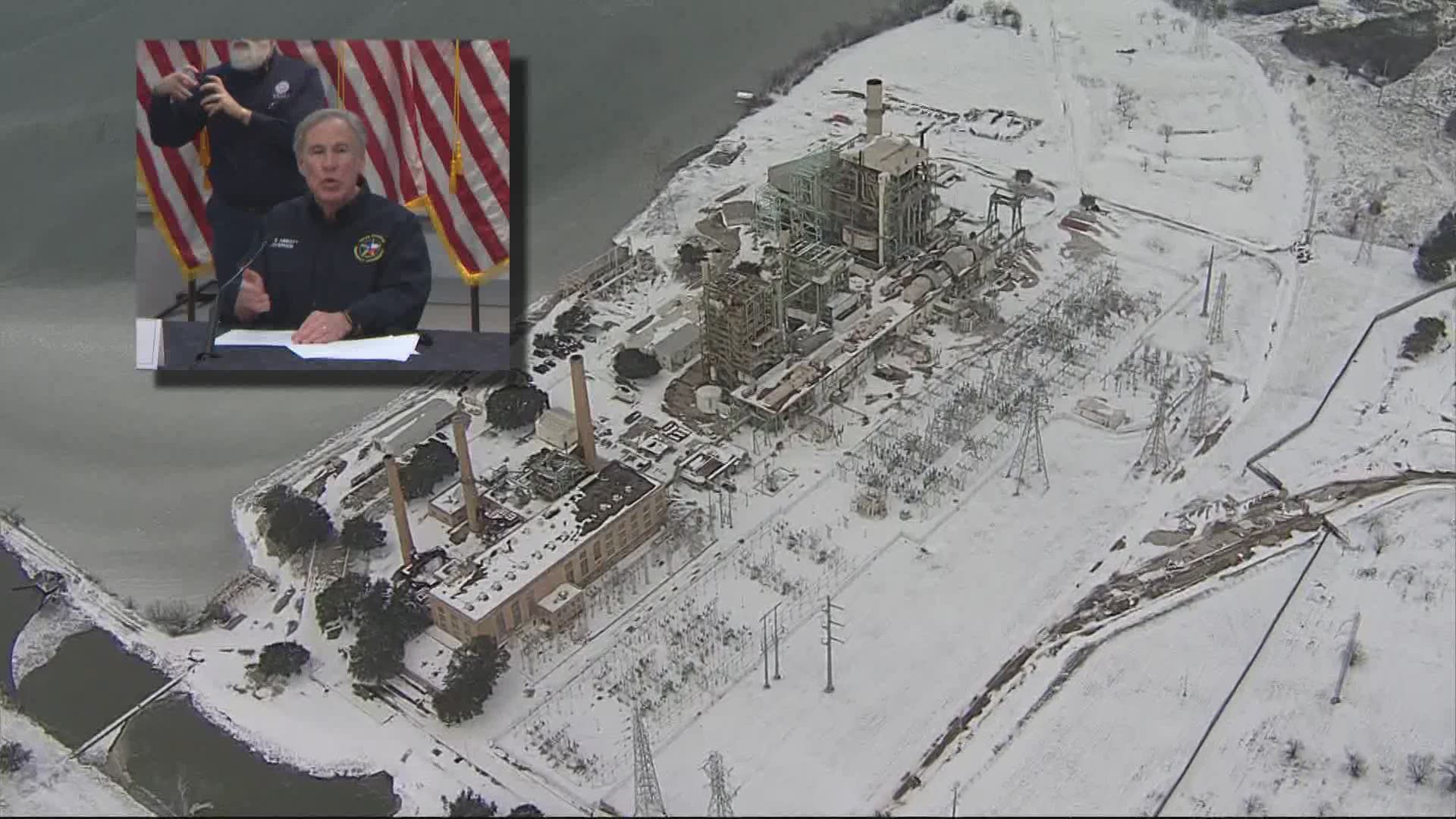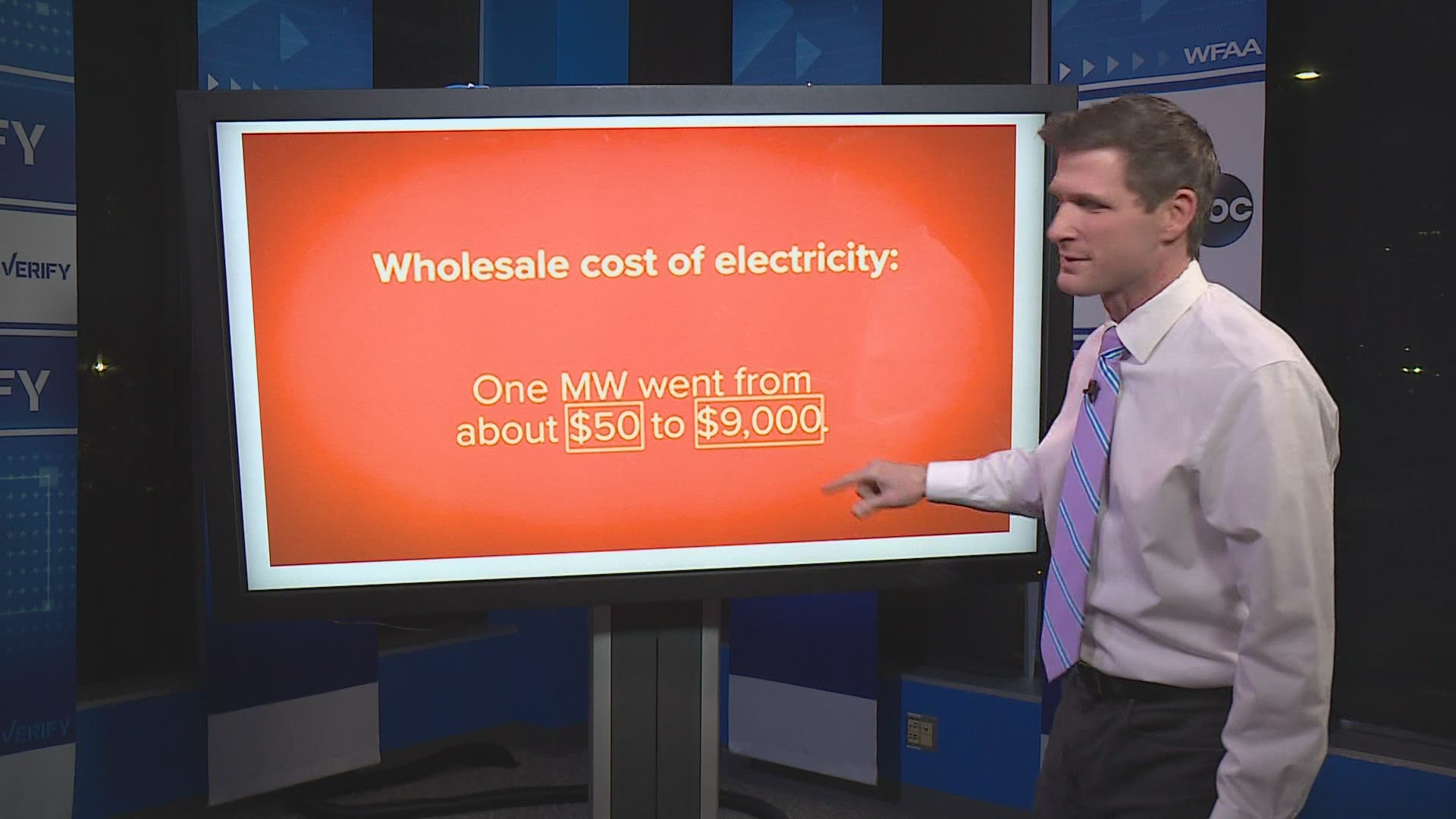As Texas thaws from a devastating and deadly week of winter storms, one question among many is how could the most energy-rich state in the country not have the equivalent of back-up generators for our now infamously-independent power grid?
“There is not a backup supply of generation,” admitted Bill Magness, CEO of the Electric Reliability Council of Texas, or ERCOT, which runs Texas’ power grid. “But that’s really caused by the way our market is structured.”
How is it structured, and why?
The answer is complicated, experts say, but important to understand.
Some parts of the country pay power plant owners to build and maintain extra generation capacity that, if needed, can be turned on and provide a boost in severe summers or bitter cold.
It’s sort of like an insurance policy, with the extra cost passed on to customers on their electricity bill.
ERCOT, which prides itself on prioritizing free market forces, minimal federal oversight and low rates for electricity customers, doesn’t have such a “capacity market.” Instead, power generators here are only paid for electricity that’s used and aren’t paid for maintaining the ability to make more in, for instance, a historic blizzard like we saw this week.
Ed Hirs, an energy economics professor at the University of Houston, compared Texas’ system to a badly managed baseball team.
“If the Rangers players were compensated the same way generators are on the ERCOT grid, they would only be paid when they actually take the field,” Hirs said. “The guy sitting on the bench, they're not being paid at all,” leaving those players little incentive to stay ready to get in the game.
"In a capacity market, the generators would have been ready to respond,” Hirs said.
Michael Webber, an energy resources professor at the University of Texas at Austin, said that a capacity market arrangement might sound like an easy fix, but it would not have solved all our problems this week.
Typically, he said, capacity markets can supply two to five gigawatts.
“We lost several dozen gigawatts,” Webber said. “It would not have made a difference. The capacity market would have been more expensive, and we still would have had this shortcoming.”
“The problem isn't that the market was badly designed,” he said. “The problem is that we did not sufficiently learn the lessons from a decade ago when we had a cold snap that caused blackouts. We did not winterize and weatherize our energy system, we didn't really apply solutions based on what we learned from that. And so we're caught again, in a kind of a replay of what happened before.”
Why not just make extra electricity and store it? That’s a good long-term solution, but battery technology is still emerging, said Bruce Bullock, director of Southern Methodist University’s Maguire Energy Institute.
“One of the bigger investments is being made and out in California,” he said. “They have a capacity market. It'll be a battery array, and they'll be compensated for that. They won't be compensated as much as if they generated. But nevertheless, it will compensate them for making that investment.”
One thing’s for sure, Texans across the state are riled. The situation got so bad that on Friday, Sid Miller, the outspoken agriculture commissioner, lashed out – at members of his own party.
“I'm a Republican. We run the state. We own this. We need to man up, take charge,” he said. “The legislature is going to hold hearings and try to figure out what's going wrong out here in the country. We've got a saying for that. Hey, buddy, you're a day late and a dollar short. It's not doing us any good now.”


